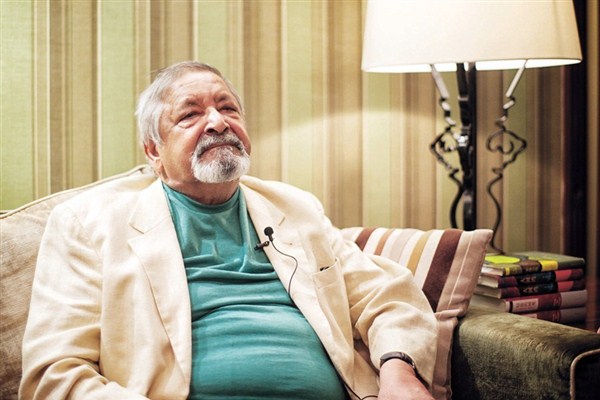今日上海
诺贝尔文学奖得主光临上海 - 2014年08月18日
Nobel-winning author in China to ‘observe’

AT the ongoing Shanghai Book Fair, V. S. Naipaul didn’t pound the table with his fist and swear at the audieqnce as some readers may have expected after reading his highly critical books and essays on developing countries.
Naipaul was in Shanghai for the launch of the Chinese edition of “A Bend in the River,” on Monday at Sinan Mansions.
Zhi An, a famous literary critic, said: “Your prophecy on Africa can also be applied to China in the past few decades. You see there are new territories and new areas everywhere.”
“That’s interesting,” Naipaul replied. “But I am not a prophet. I only observed. The future is always contained in the present. When I wrote the book, I never thought of China. I didn’t know China had a similar experience. But yes, all the Third World countries have similar problems.”
Jeet Thayil, an Indian writer who is now in Shanghai for the M Literary Residence, says Naipaul’s works are often difficult to read, but worth it.
“Naipaul is a controversial writer because he is very critical and negative,” he says. “It hurts to read his trilogy on India, but we know he wrote them with love. It’s lucky we have such a person to watch us from this close. He has the knowledge in his mind and he has the words at his hands. That is a gift.”
Naipaul was born in 1932 in Trinidad and Tobago and left when he was 18 to study at Oxford. He had wanted to be a writer. He had a brilliant start as a writer — five books in seven years — including “A House for Mr Biswas,” which tells a heartfelt story about the search for independence and identity of a Brahmin Indian living in Trinidad.
The protagonist was partly modeled after his father and Naipaul has said it became such a deeply personal story that parts of it seemed more real than reality.
Naipaul has lived in Britain since 1950 but he travels frequently to the Caribbean islands, Africa and Asia. He has written more than 30 works of fiction and nonfiction, examining the clash between belief and unbelief, the unraveling of the British Empire and the migrations of peoples.
For years Naipaul has written candidly and fearlessly. Knighted in 1990, he is Britain’s only living Nobel Prize Laureate in Literature, having been awarded the prize in October 2001, when many were just awakening to the realities Naipaul had been writing about for more than 20 years.
At a recent interview in Shanghai, asked if winning the Nobel Prize brought him bigger fame but also more criticism, Naipaul responded, “I can deal with it.”
Asked if he had any expectations about his trip to China, he said, “I am not expecting anything. I am here to observe.”
Facing an audience of about 500 students, journalists and literary intellectuals at the Shanghai Science Hall on Nanchang Road, Naipaul was pushed onto the stage in his wheelchair with his wife, Nadira.
Asked if he was ready for a speech, he said: “If there has to be a way to talk about it, there is a way to talk about it eventually ... only I need the questions to feed me.”
